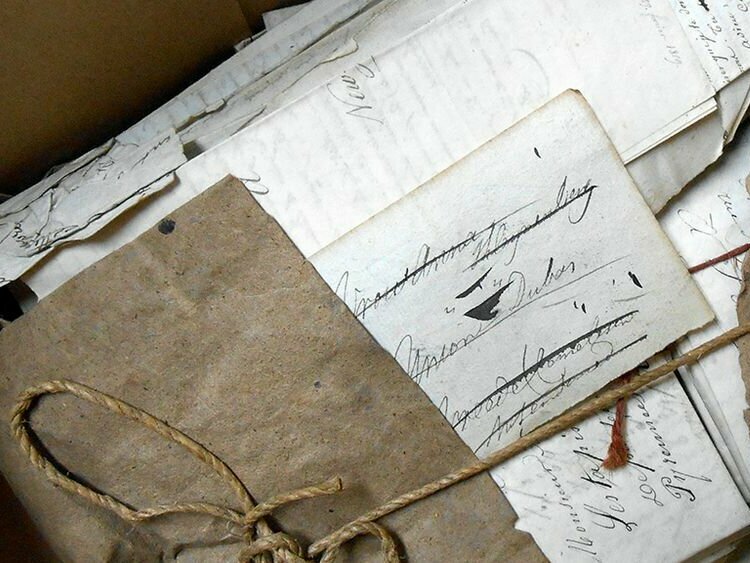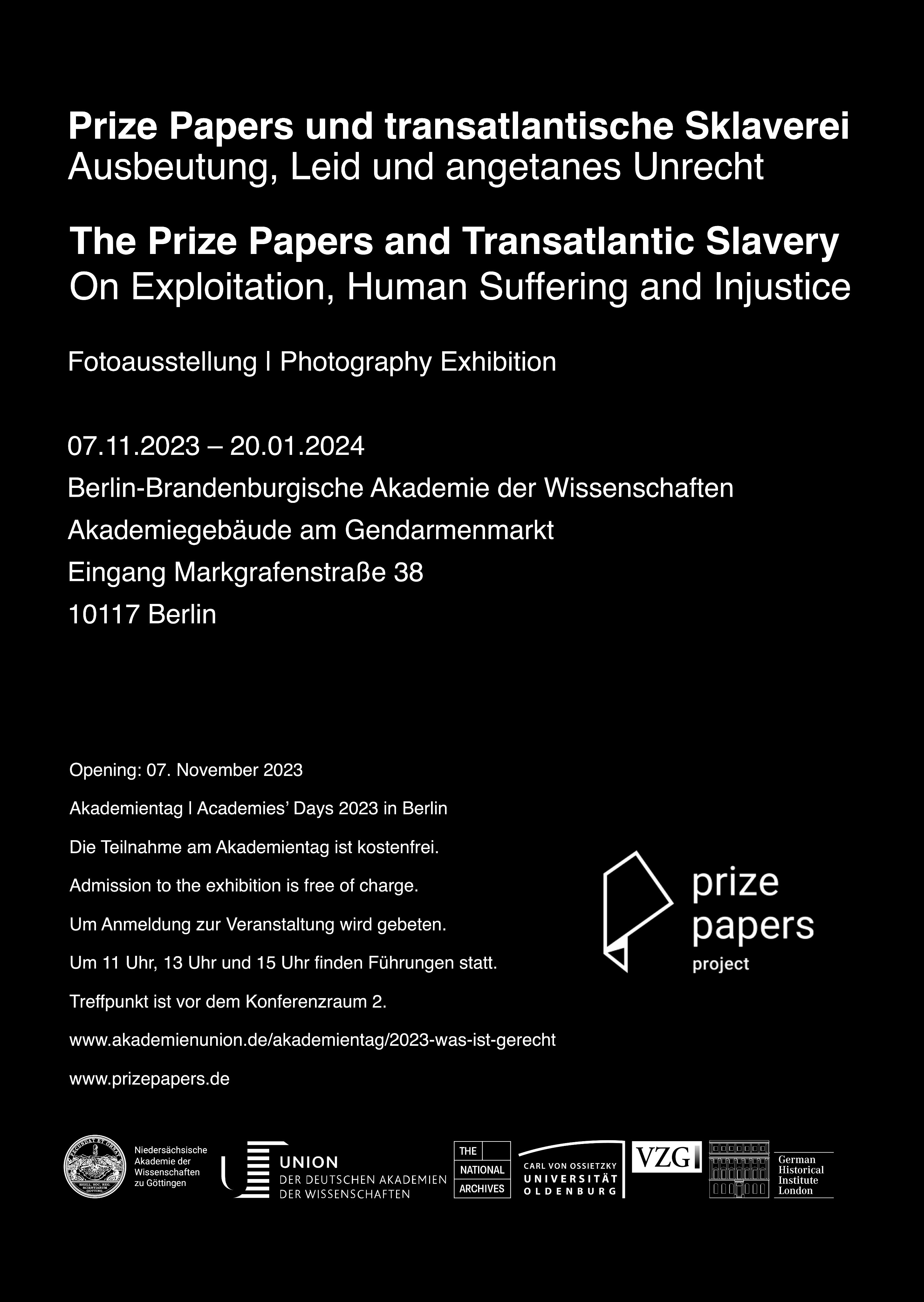Prize Papers. Cataloguing – Digitisation – Presentation
(University of Oldenburg in co-operation with The National Archives, Kew and the GHIL)
dagmar.freist@uni-oldenburg.de
Exhibition
The Prize Papers and Transatlantic Slavery. On Exploitation, Human Suffering and Injustice
Berlin-Brandenburgische Akademie der Wissenschaften

This exhibition will be launched in Berlin as part of the Akademientag 2023.
The Akademientag (Academies' Day) is a major collective event of the eight academies of sciences united in the German Akademienunion (the Union of German Academies). During this science day, the academies showcase their research work and invite the public to engage in meaningful dialogue.
The exhibition will be on display from November 7 to January 20, 2024 in the corridor behind the Leibniz Hall of the Berlin-Brandenburg Academy of Sciences and Humanities, Akademiegebäude am Gendarmenmarkt, entrance Markgrafenstraße 38, 10117 Berlin. Admission to the exhibition is free of charge.
To attend the Academies' Day and the opening of the exhibition on November 7, 2023, register here (in German): https://www.akademienunion.de/akademientag/akademientag/2023-was-ist-gerecht
Some parts of the exhibition can be viewed online.
Berlin
07.11.2023–20.01.2024
The ‘Prize Papers’ project is led by the historian Prof. Dr. Dagmar Freist, features an international team of early-career researchers, and is based at the Carl von Ossietzky University of Oldenburg, Germany. The project co-operates closely with The National Archives, Kew, the German Historical Institute London, and the IT Experts of the VZG Göttingen, and communicates closely with international scholars working with the prize papers. The project is supervised by the Academy of Sciences and Humanities in Göttingen, and, as part of the German Academies Programme, is financed by the German government and the federal state of Lower Saxony.
The Prize Papers trace back to the practice of prize-taking at sea, which was part of the military strategy of early modern naval powers. Martial law required that the legality of a capture be established before a Prize or Admiralty Court; to that end, the entire cargo (including private and commercial documents, ship’s papers, newspapers, personal effects, trading registers etc.) had to be seized by the capturing party. In the High Court of Admirality (HCA) collection at the National Archives, Kew, London, these captured documents and objects from the period between 1664 and 1817 have been preserved, together with the corresponding process files, largely untouched and unsorted as the only surviving collection of its kind in Europe.
This accidental preservation, stretching over more than two centuries, has created a global archive that has not been subjected to any selection or revision by the historical authors themselves, their descendants, or archivists. Thus the Prize Papers allow unique insights into past worlds and cosmologies, historical self-concepts, interpersonal relationships, language acquisition, knowledge transfer, and political and economic practices and processes of juridification in the context of the global interweaving of Europe and the world.
The aim of the project is the complete digitization of the Prize Papers including the preservation of the collection’s material dimension, the initial and in-depth cataloguing, the creation of research-oriented metadata, and finally the presentation of the digital copies and the metadata in an open-access research database. Not only will the entirety of the material thus be made accessible to researchers, but the contextualization and synchronization of all the documents and the information they contain, which is so vital for research, will also become possible for the first time.
More information is available here (this link will take you to the Prize Papers website).